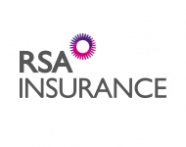The future of the London Market

Authored by RSA
For individuals, businesses and communities, the last few years have been disruptive and uncertain, but they have also presented an opportunity to embrace change. Many large London-based insurance companies, brokerages, and Lloyds itself are now returning to business as usual, employing lessons and technologies from the past year and slowly navigating their road to recovery. We share our thoughts on how the previously very traditional London Market is evolving.
As the world’s leading insurance and reinsurance marketplace, Lloyds will always be a prominent feature of our capital city, and people continue to love its rich heritage and history. But with the disruption of recent years, the Lloyd’s and London Market appear to have been forever changed, resulting in a distinct step change to trade more of their portfolios online.
Although the road to digitisation had begun before COVID-19 hit, the pandemic only catalysed the transformation of this traditional marketplace. We were already seeing fewer suits and briefcases pounding the streets around Tower Hill and Liverpool Street, and the evolution to a more automated way of broking the less complex deals had already started in earnest.
But the move to working from home, the closure of the city’s most prominent broker offices and their clients have all led to accelerating the dependency on broking platforms such as Whitespace and PPL, and virtual interacting and trading in place of face-to-face meetings.
Time for change at Lloyds of London
In March, the renowned insurance market, Lloyds of London, shut its grand underwriting room for the first time since World War II. It reopened in September, with changes to their physical footprint to comply with government guidelines and capacity at 45%, but with flexible working now the norm, the transition to a different way of working for this 334-year-old institution has already begun.
Lloyds are seemingly set on their mission to create ‘the world’s most advanced insurance marketplace’ and enable an entirely new working model. They promise to shift the market to a digital ecosystem, powered by data and technology – making their business more customer-centric and ultimately delivering better value at a lower cost. With this ambitious transformation well underway, it’s vital that insurers and brokerages keep up.
During the pandemic, the market launched Blueprint Two on 5th November 2020, targeting £800 million of market-wide costs savings due to a string of modernisation initiatives. All these focus on redesigning the insurance transaction processes for open-market and delegated authority business – which accounts for more than 90% of the insurance contracts placed at Lloyd’s.
Automating the broker/carrier experience
Placing Platform Limited (PPL) offers a critical component of the London Market modernisation programme, facilitating faster and leaner face-to-face negotiation, electronic risk capture, placing, signing and closing.
Three participant organisations own PPL: International Underwriting Association (IUA); London and International Insurance Brokers’ Association (LIIBA); and Lloyd’s Market Association (LMA). The platform has various features and offers many benefits that help speed up underwriting response, broker turnaround, accuracy and document production. Its biggest limitation is that by being a proprietary platform, it is tied to the Lloyds Market.
But PPL is now one of two fully recognised platforms available. The second, independently owned Whitespace, was launched at the end of August 2019 and brought its 100th customer on board in July 2020 - when it was also granted “fully recognised” status with Lloyd’s ePlacing systems.
Introduced to increase the speed, accuracy, availability, and quantity of in-depth data for risk analysis, the platform has also evolved throughout Covid-19 to incorporate more functionality, including instant messaging between brokers and underwriters.
In fact, both platforms experienced a surge in adoption throughout the pandemic.
For RSA, they have become the way we prefer to work (as much as 95% of our specialist risks now go through both platforms), not only to allow us to stay safe; but also, to help in our drive for more efficiency, better placement of risks and greater insight into the market trends. This ultimately allows for better conversations on the more complex risks where more time and collaboration is required from both a broker and underwriting perspective.
London business
Brexit has already started a shift in the profile of big businesses trading in the UK. Over the past year, many high-profile firms have moved or are in the process of moving their European headquarters and thousands of jobs from London to cities like Amsterdam, Dublin, Paris, Frankfurt, and even Dubai. Even Lloyd’s of London established an insurance company in Brussels to remain fully operational in the EU after Brexit.
And while Lloyd’s was traditionally the only port of call for some types of specialist insurance, large business buyers now have a lot more choice from growing financial centres like Singapore, Hong Kong and Dubai.
But with the operating cost model of Lloyds now undergoing a revolution through the accelerated introduction of virtual networking, more intelligent transference of data and the widespread adoption of broking platforms - it is undoubtedly down to the London Market to maintain a competitive edge and ensure that doing business with them remains attractive in the post-Covid, post-Brexit world.
The evolution of e-Trading at RSA
At RSA, we are always looking at new ways we can evolve and improve the way brokers can do business with us whilst keeping true to our knowledge and expertise. The move to digital in the London Market has helped us to streamline our own offering and look much closer at the connection between the services we offer and the risks we underwrite.
As we look to our future, we are hoping to integrate these systems into our own in a more seamless, streamlined way – allowing us to have a rich and constantly evolving source of information to continue developing our specialist and complex risk solutions.
The shift to seamless trading supported by rich data, allows the market to review the underwriting process and make quicker and more informed decisions. This will support brokers and clients both domestically and internationally place risks with the ultimate aim of achieving a sustainable marketplace giving clients longevity.
Helping to build resilience and stability.
We work closely with you and your large corporate clients to understand the business, the complexities of the risks it faces, and the best way to mitigate and insure those risks. It’s a close working relationship that leads to deep understanding, a clear strategic focus and more resilient operations.
To find out more from RSA CLICK HERE
About RSA
With a 300-year heritage, RSA is one of the world’s leading multinational insurance groups.
Today, RSA employ around 23,000 people, serving 17 million customers in around 140 countries. While RSA's origins lie in London, RSA is a global company with businesses in both mature and emerging markets. RSA have major operations in the UK, Ireland, Scandinavia, Central and Eastern Europe, Canada, Asia, the Middle East and Latin America. youTalk-insurance sharing insurance news and video.

